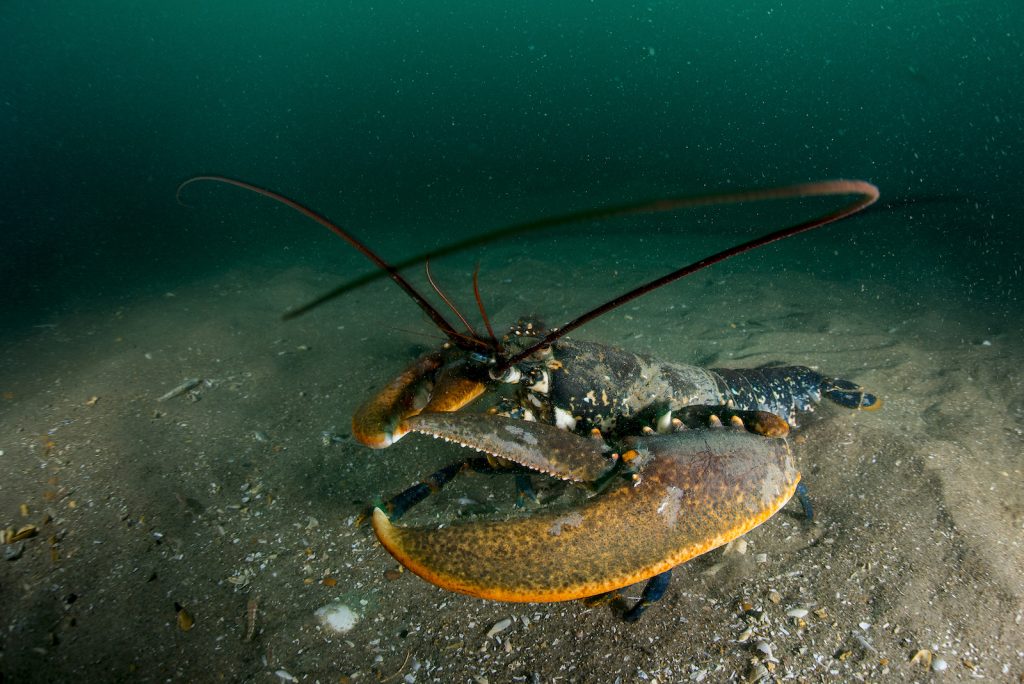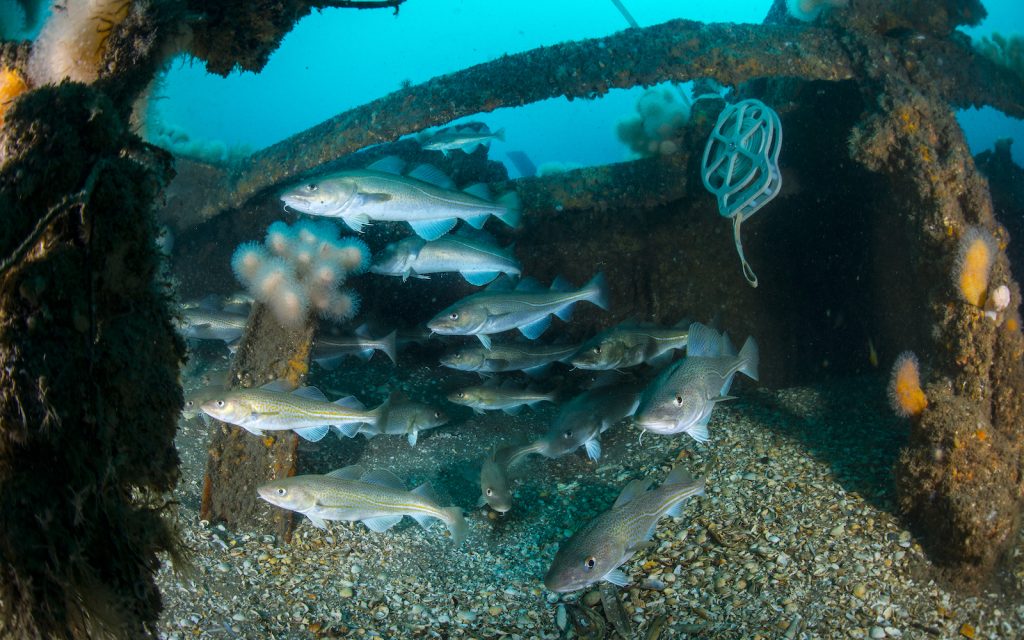by, Thomas Appleby, Chief Legal Affairs Adviser and Associate Professor at the University of the West of England.
Dogger Bank is one of four areas in English waters that will be protected from damaging fishing activities, the Government has announced following a campaign by Blue Marine Foundation and other conservation groups.
Byelaws banning trawling and dredging will be brought in for Dogger Bank in the North Sea, which was the site of a Greenpeace protest that saw the group dropping boulders into the water to stop damaging fishing followed by a legal challenge to the government by Blue Marine.
The move to protect the important shallow sandbank habitat has been heralded as “the beginning of the rewilding of the North Sea”.
Byelaws safeguarding marine protected areas from damaging fishing activities will also be introduced for Inner Dowsing, Race Bank and North Ridge, off the south Lincolnshire coast; South Dorset Marine Conservation Zone, and The Canyons, an area of cold water coral reefs more than 200 miles from Land’s End, Cornwall.
Environment Secretary George Eustice said: “Outside the EU, we are using our new freedoms to protect our marine environment.
“We will be stopping trawling and dredging in these marine protected areas to protect wildlife and habitats, through powers we have in our Fisheries Act 2020.”
Environmental groups have welcomed the move, which comes into force in two months’ time, but warn that more action is needed to protect the rest of the network of English marine protected areas.

Photo: European lobster – ┬® Onderwaterbeelden.nl
Charles Clover, executive director of the Blue Marine Foundation, said: “We are delighted that the Government has finally got round to protecting the Dogger Bank and the three other sites.
“The Dogger itself is the size of the Bristol Channel, so protecting the British part – all 12,000 square kilometres of it – from damaging activities is an enormous and welcome precedent for the protection of all our UK offshore marine protected areas which were formerly, almost all, ‘paper parks’ where anything goes.
“It is the beginning of the rewilding of the North Sea.”
He said the protections were the result of a legal campaign by Blue and other groups against the Government for breaking habitat protection laws by allowing bottom trawling dredging on more than 60 protected sites.
And he raised concerns that new plans by the Government would remove legal responsibilities from ministers to protect designated areas.
Fiona Nicholls, an oceans campaigner at Greenpeace UK, said: “We need the Government to get us on track this year to fully or highly protecting all of our marine protected areas.”
Melissa Moore, head of UK policy from conservation group Oceana, said: “It’s good news that Government has at last taken the first step to manage four of their 64 offshore MPAs, given damaging activity such as bottom trawling is prohibited in MPAs under conservation law.
“Oceana’s analysis found over 68,337 fishing hours using bottom towed gear within these offshore MPAs in 2020.”

Photo: Atlantic cod – ┬® Onderwaterbeelden.nl
The four marine protected areas, where fishing with bottom towed gears will be banned in specified areas, are:
– Dogger Bank, a shallow sandbank in the North Sea, which is home to species such as sand eels, that are food for puffins and porpoises;
– The Canyons, a deep sea habitat off the coast of Cornwall which harbours cold water coral reef and coral gardens;
– Inner Dowsing, Race Bank and North Ridge Special Area of Conservation, off the Lincolnshire and North Norfolk coasts, whose sandbanks and reefs are home to wildlife including lobster, crabs and pink shrimp.
– South Dorset Marine Conservation Zone, off the coast of Dorset, which is home to sea squirts, crabs, sponges, scallops and starfish.
There are additional restrictions for static gears, such as pots and set nets, over sensitive features in Inner Dowsing and the Canyons.
The Blue Marine legal campaign had two phases, a challenge to the government last year on the grounds that the granting of fishing licences to fish on the Dogger Bank, an area protected under the Habitats Regulations, was illegal. This challenge was withdrawn when the government promised to protect the four sites.
A long delay then ensued and so Blue Marine’s legal team again contemplated litigation by issuing a pre-action letter to the Marine Management Organisation last month which said that the government was still acting illegally in granting fishing licences in protected areas.
Blue Marine’s legal team believes that similar protection should be applied following the Dogger Bank case to over 60 other offshore protected areas in UK waters where trawling and dredging continue and are thus also illegal under UK law. Blue Marine is engaged in a similar action with other European environment groups on the European part of the Dogger Bank, which remains unprotected.
There is widespread concern that the government is proposing to change the law to remove the legal responsibility on ministers to protect nature sites that led to the protection of these four sites under its Nature Recovery Green Paper, published last month.
Cover photo: Curled octopus – ┬® Onderwaterbeelden.nl
Read more: Marine experts call for end to illegal fishing on the Dogger Bank in new report.
Press coverage
Daily Mail – Dogger Bank among four areas of English seas protected from damaging fishing – 13 April 2022
Surrey Comet – Dogger Bank among four areas of English seas protected from damaging fishing – 13 April 2022
Glasgow Evening Times – Dogger Bank among four areas of English seas protected from damaging fishing – 13 April 2022
The Guardian – UK’s largest sandbank given protection from bottom trawling – 14 April 2022
Ecologist – Fisher trawling rocked by Dogger Bank bylaws – 14 April 2022
Independent – Dogger Bank among four areas of English seas protected from damaging fishing – 13 April 2022


















